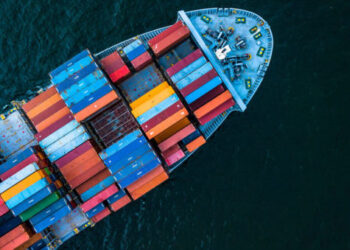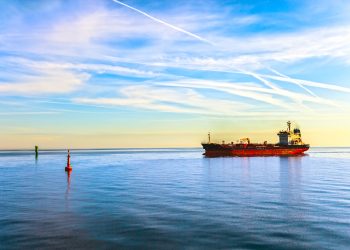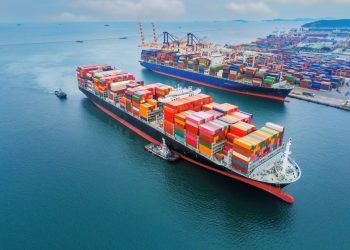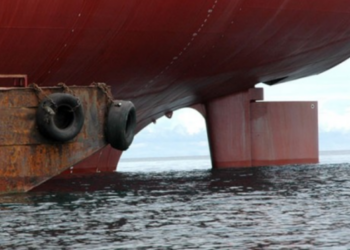Erasmia Vlachandrea, HSE & Vetting Manager, Alison Management Corp.analysed the”Best Practices on operational level from the Operator Perspective” at the 2015 SAFETY4SEA Athens Forum. She stated that commercial vessels are by definition unsafe and mitigating safety risks is a challenging job. Over the past decades, rendering the ships safe is becoming more and more demanding as requirements get stricter and more complicated. The benefits of a well-established safety culture are never apparent immediately. She concluded that no matter the obstacles, it will pay off eventually.
The nature of the safety and the shipping industry and particularly in tankers has changed radically over the last two decades as we all know, many issues have appeared and that has made us all to change our outlook on how we work; this goes especially for oil companies, seafarers onboard the vessel, Port State Controls, P&I Clubs, Classification Societies and flag administrators.
When I first became a DPA during my first steps in the industry I was onboard an oil tanker on the maiden voyage and I tried to take the elevator together with the engineer but unfortunately the cabinet never arrived. When we opened the door which showed the shaft underneath, the master of the vessel after he noticed the commotion he came out and said Oh my God, we would lose the chief engineer and I said You would also lose the DPA. And he said You know, I cant sail without a chief engineer but without the DPA I could probably sail better. So, this is how I started out! Fortunately, things are much better now. We got here mainly because of the flood of recent legislation regarding safety and pollution prevention which pushed us very hard but also due to the need of the industry to catch up quickly and the commercial tensions which demand high level of operation not necessarily supporting it with financial rewards.
So what happened? All of these factors happened. The main one being the ISM and of course some very embarrassing incidents, like the Exxon Valdez. In my mind, Exxon Valdez was rather embarrassing than dangerous because we had this tremendous pollution but fortunately we didnt have any loss of life. So yes, the legislation had to change. The vetting inspections are getting more and stricter and we all try to cope with that as it is a real burden both at the office and onboard.
Unfortunately we cannot force anybody to be safe. We have to convince people that they want to be safe. We have to make them wish to be safe and sometimes we have very experienced seafarers who are victims of overconfidence. Sometimes we have extremely difficult commercial pressures that might overrule our safety practices. Sometimes we have extended crew contracts resulting into tired people who make mistakes. The rapid expansion of fleets is always a high risk. It is possible that the masters overriding authority could be compromised when the office implies / dictates a desirable course of action. Of course everybody says yes. We do have masters overriding authority however at times the poor master feels some pressure not overtly to do things the way we want them.
Another major area is work /rest hours. I dont think that any company so far has addressed this issue adequately, but we do turn arise the other way and we choose not to see it very well. Work / Rest hours are regularly jeopardized while we look the other way; most of the time we have very tired seafarers onboard. Bad markets breed unsafe ships because then we have a lot other priorities. Other realities a safety department faces are the lack of crew stability which hinders long term development of a safety culture. In a safety department, we often have very dedicated and very skilled masters and chief engineers as well as very good seafarers with solid nautical backgrounds, however these people are not necessarily managers and they have to manage all the people onboard and vessels who cannot be on remote control. There must be decisions made onboard by the people who are onboard, they have to be skilled, experienced, trustworthy and level-headed and these individuals must be there on the spot. What most of us try very hard to do is promote the safety culture, protect the seafarers, and as much as possible keep our companies names away from negative publicity. We try to meet regulations, comply with oil major Companies requirements and train our people to the maximum extent of our budgets. We try to keep a low profile in the safety departments and help the other departments make money since unfortunately our department will never make any money, we only spend it and we are quite often reminded of this fact.
So in effect and in every day terms this means that we try to persuade our top management that safety, quality and the protection of the environment make good business sense. Although, they wont be able to see it today, eventually they will and eventually it will bring money to the company. We try to get fair share of the budget so we can educate, upgrade, implement, innovate and prevent disasters and keep people happy onboard to the best of our abilities. Most of the time, these efforts happen in a bad market. And unfortunately, even if you have an excellent record for seven or eight years, once serious incident could erase all of your good efforts in minutes.
Fortunately the results are good, mainly because we have good people in these posts. We have come a very long way in the span of a very short time. Most companies have realized that the effective use of safety systems makes good business sense indeed even if the market is less than perfect and they do persevere. Safety managers are today much busier with complex issues. We can actively contribute in these days to the best possible operation of the ships and make it easier for the other departments to earn more and the majority of our seafarers play along. They do embrace the culture we try to import; they do operate safely to the best of their abilities and try to follow to their best of their efforts.
If I were allowed to make a few suggestions to my fellow safety and quality peers it would go like this:
|
Above article is an edited version of Mrs. Vlachandrea presentation during the 2015 SAFETY4SEA Forum which successfullyconcluded on Wednesday 7thof October 2015in Eugenides Foundation Athens attracting1100 delegates from 30 countries representing a total of 480 organizations.
Click here to view her presentation video





























































